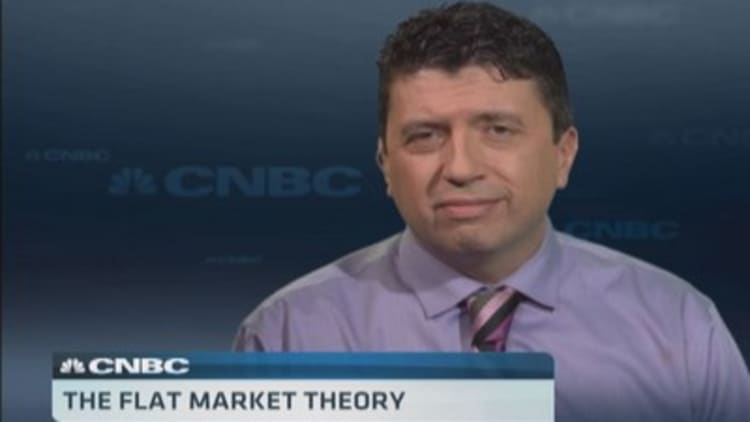This winter-into-spring of geopolitical disturbance could generate a "summer of grumbling discontent" for the global economy, according to one Wall Street forecast.
Though markets Monday mostly cheered Crimea's decision to end the uncertainty and align itself with Russia, the saga in that part of the world is likely only taking a breather.
As political unrest continues and Russia deals with sanctions from the West, an economic recovery expected to be led by the U.S. and other developing markets could morph into a significant letdown that dampens the spirits of risk-embracing investors.
"All-in-all, it feels as if we may be heading into a summer of grumbling discontent, rather than the steady and progressive U.S.-led recovery that had become the consensus view around the start of the year," Mark Schofield, head of interest rate strategy at Citigroup, said in a note.

(Read more: The next big investor challenge: Correlation)
As a firm Citi already has cut its 2014 growth outlook for Russia, estimating that gross domestic product now will increase at just a 1 percent pace from an original forecast of 2.6 percent.
That lower growth becomes part of a worsening global outlook not only because of political unrest but also due to generally slowing conditions.
"The concerns stem not just from raised geopolitical risk but also from fears surrounding the longer-term macroeconomic implications," Schofield said. "Clearly the tensions in Ukraine have been central to the recent bouts of market uncertainty, but the greater concerns going forward probably come from the risk of significant damage to economic confidence and to economic recovery than from the threat of an escalation in military tensions."
(Read more: Flat market theory: Why S&P 500 is going nowhere)
In the U.S., earnings projections would then become central to whether investors believe stock market valuations, which are around historical norms now from recessionary levels after the financial crisis.
Multiple expansion—or the price compared to earnings that investors are willing to pay for stocks—has been critical to the rally off the lows set five years ago this month.
The bad news is that once-buoyant earnings expectations have dimmed considerably, calling into question how much momentum is left in the rally.
"Worse-than-expected winter weather continues to have an eroding effect on EPS growth projections," said a note from S&P Capital IQ's chief equity strategist, Sam Stovall, who pointed out that projections for first-quarter profits "as well as full-year estimates, continue to slide."
(Read more: The scary factors behind copper's price plunge)
In fact, the quarter is expected to show annualized earnings gains of less than 1 percent. That forecast is down from 5 percent just a few months ago at the beginning of the year and 7 percent six months ago.
Stovall and his team remain bullish on the market, though they expect a good rather than great year in 2014.
That may well hold, and only a few Wall Street pros see the market going flat this year and none are predicting losses. But the momentum lately has been toward pessimism.
(Read more: Corporate debt fever surges to new record)
"Investors must begin to question the growing risks around the consensus views of an ongoing equity rally, modestly rising bond yields, a modest recovery in the dollar and further narrowing of the (emerging market vs. developing market) growth gap," Schofield said. "With greater uncertainty about the medium-term outlook, equities as an income trade could start to look less attractive."
Even a modest slowdown from last year's torrid 29 percent gain could feel like a beatdown. Schofield's outlook is essentially to stay tuned, as the global upset so far doesn't look—yet—like enough to cause lasting damage.
"The current crisis seems to have the right mix of potential threats and risks to finally unsettle investors, but it probably needs to be a little more widespread before serious damage is done," Schofield said.
—By CNBC's Jeff Cox. Follow him on Twitter @JeffCoxCNBCcom.






